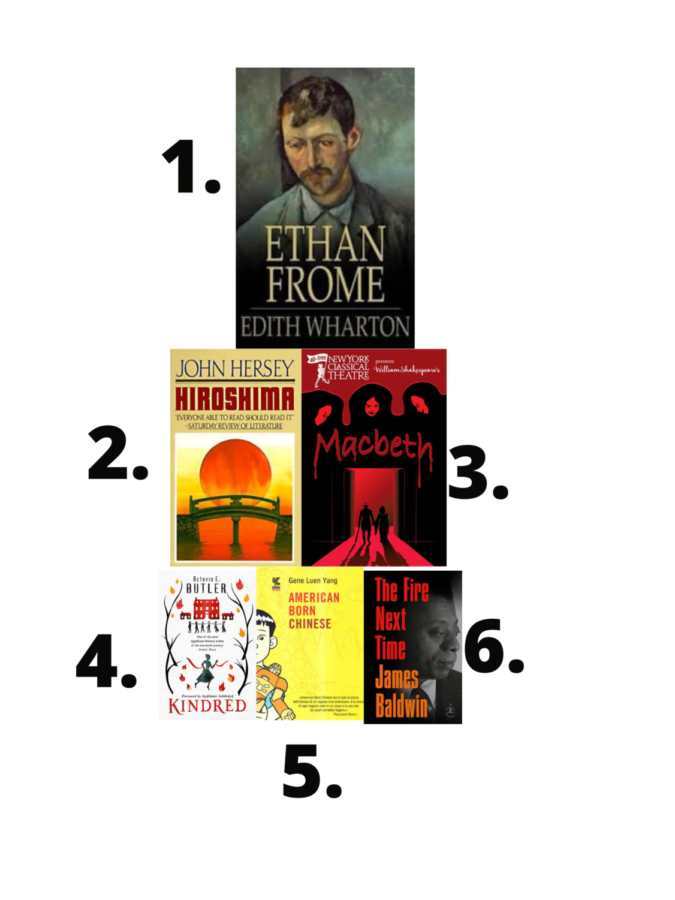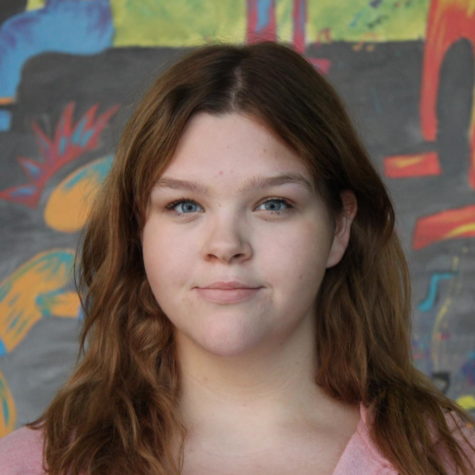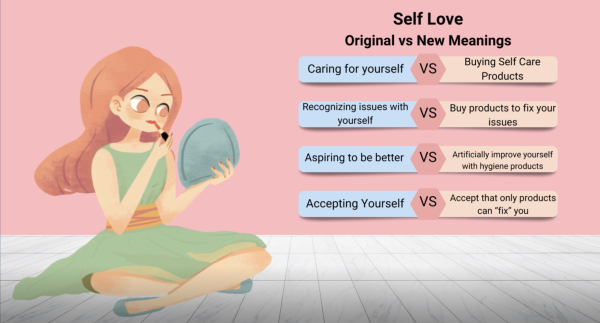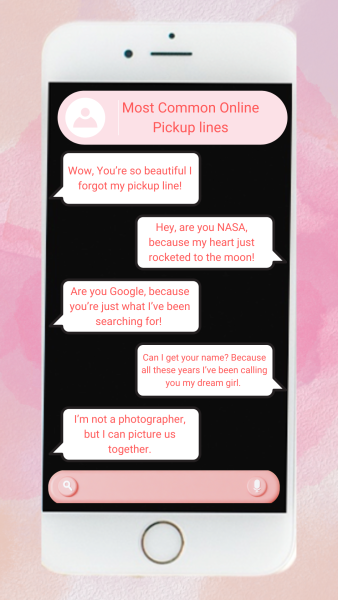Sophomore year in book reviews
June 4, 2022
Every year at some point or another I am left in an English class staring down my most recently assigned book, begging it fold in on itself and dissipate just to avoid the next 30 minutes of reading. Sometimes the books I’m assigned make me question how I used to be such an avid reader or if the author had been left on their own for a bit too long and was losing it. Others however, have managed to reel me in.
This year my English teacher, Ms. Connor had an interesting rule she told us about while giving the typical beginning-of-the-year syllabus spiel. Any book she assigned us to read had once been banned and was marked as sensitive material by OPS.
For the first time in a while, my eyes lit up at the idea of reading, and I wanted to know what material we would cover in the next school year. Books are banned for stupid reasons all the time but with that rule of thumb, I felt my expectations rise. I mean, she had tons of good options, where could she go wrong?
As this school year nears its end, I find myself drawing comparisons between some of the literature I was exposed to thanks to this class. I was left questioning if the books we read were worth the anticipation I felt at the beginning of the year.
The first book we read was passed out while the room was still a little sticky with humidity and the year had yet to tire me, “Hiroshima”.
“Hiroshima” is a combination of storytelling mixed in with Journalism and was originally published in “The New Yorker”. The book covers the lives of six individuals who experienced the first atomic bomb drop in 1945 Japan.
I enjoyed reading “Hiroshima,”but I did not love it. The author, John Hersey provides details that allow readers to be engulfed by the emotions of those who did experience “Hiroshima” itself.
The book is divided up by when the events occurred, meaning there are six different individuals’ stories being told in each chapter. While the structure made it hard to follow at times, reading this way allowed for the progression of their lives to become a more emulsifying experience.
Hersey’s work was important to its time, when many Americans couldn’t manage to see their wrongs. His work humanized their enemies and made room for more conversations to occur.
Hersey also keeps his journalistic writing throughout a majority of the book. It is told in a flat tone and doesn’t overdramatize the emotions or flat out give opinions on what happened.
However, I find it very odd that so many of the peoples’ interviews he chose to include had connections to Catholicism or Christianity. Japan’s Indigenous religion is Shinto, and it makes no sense that western religions seem to be centralized.
The next book we read was “American Born Chinese”. The room was cooler, and the school year had set in, and I had realized I would rather be in bed than at school again. Perfect time for a graphic novel.
“American Born Chinese” is a graphic novel told in a similar light to “Hiroshima”. There are different stories of different characters in each chapter. The three stories intersect with themes of internalized racism and self-acceptance.
The book itself is really well put together- the illustrations are beautifully done and convey the emotion of the book so well. The ability to make such heavy concepts easily digestible is important. People are lazy, but not too lazy to read such a fast paced graphic novel- it’s no wonder it was a class favorite book.
The only thing that bothered me about this book is the pacing. It is fast paced but not everything is divided up evenly. The first half of the book moves kind of slowly, but not slow enough to make me stop reading. It is enough to distract me from reading though.
In fact, the whole first half of the book seems disconnected. It is too unclear where the stories will go and that could potentially draw some readers out.
Because it is fast paced in the beginning, the ending is very sudden and all the twists that occur get a little confusing. Amia Bartee, 10, attends Burke and told me how she read the book in middle school.
“I really did enjoy it, but I remember as we got to the end just being confused. It was like so much changed at once and I didn’t really process it all.”
This book has the ability to be so impactful but if the ending gets ignored because of a few flaws with the writing, readers miss out so much.
I think one way the structure for the tenth grade reading schedule could improve would be by putting “American Born Chinese” before “Hiroshima” this way students have experience with a story that is easier to read but still includes multiple story lines in a single chapter.
“Ethan Frome” by Edith Wharton is a framed narrative with the majority of the story taking place in 1911, Sparksfield, Massachusetts. The whole town is bleak and desolate, just like the dreary weather at the end of the first semester when we read this.
Although the plot is nothing rapturing, the characters’ internal conflicts fuel the book. A sad marriage verging toward a love triangle is nothing new.
It is how Edith Wharton manages to make the characters’ emotions so strong that makes the book my favorite. The emotions run the book more than the plot and each character is well developed enough with their emotions to where a genuine connection to the character can be felt.
The book is fast paced but timed right to where it is nonstop page turning- it’s a pretty short read and I actually finished it in three sittings but could have managed it in even just one.
Ethan feels trapped in a way that a majority of people have or will feel trapped. Events occurred that were not their fault, and they are left paying the rest of their lives for it. Most of us escape this horror, but if we don’t, we’d be just like Ethan. Living life desperate for an escape.
Every character is multidimensional. Every character says and does stupid things because that is what people do and sticking characters in a box of good vs bad creates a boring story.
“The Fire Next Time” by James Baldwin was the first and only nonfiction book we read all year. It contained two essays both written in the 1960’s addressing race in America.
I wish I had been able to focus on this book more, but I just couldn’t. Connor herself admits “it’s difficult for students to read because it’s an essay rather than a narrative piece.”
…Yeah, I was one of those students who struggled.
I can and do enjoy essay readings sometimes, but when I’m not in the mood for them, I’m really not in the mood for them. Especially in the middle of a bitter February.
Despite the fact that reading this book was an absolute chore for me, it is an amazing piece of work. Baldwin does a wonderful job, so much so that his work feels current. It’s hard to believe that he wrote it in the 60’s.
Baldwin also manages to provide nuance to using religion to escape racism and how the church pulls people in.
I wish I had been able to enjoy reading his work. Aside from being an essay piece, I found it extremely slow paced. There are bits included that seem to provide very little to the reader, yet they go on and on and I found myself wanting the book over almost as soon as a began reading.
From “The Fire Next Time”, we moved to “Kindred” by Octavia Butler. “Kindred” follows a Black woman named Dana who is transported from her time back to the Antebellum South. Dana is pulled through the horrors of slavery, and the book draws parallels to racism of the past to racism still occurring today.
“Kindred” manages to be so historically accurate that many have compared it to just a history textbook. It has the power to pull the reader in and provide context to historical events while still being a work of fiction.
I didn’t feel this way as I read though. The book managed to keep my interest but I’m not the type of person who needs to hear events in grave detail to understand what happened. When I do learn about history, I always prefer nonfiction stories.
The book especially gets into unnecessary details about sexual abuse. I mentioned to a friend that the content was so heavy I was driven away from the book, and they practically laughed it off. I don’t think when people heard me saying I couldn’t manage the content that they got the full picture.
They didn’t see me struggling to make it through the last bits of a chapter trying to block out flashbacks of my own, pushing to finish my homework so I could get to sleep and hopefully make it stop. I tried to prepare for it, but I wasn’t ready. Because it left me so distraught, I blocked out a majority of the rest of the book.
The violence in detail leaves me more emotionally distraught than understanding events. Maybe it isn’t the best book for a classroom environment…
Finally, as the end of the year rolled around, Ms. Conner had us vote between reading “Macbeth” or “12 Angry Men “. I voted for “12 Angry Men” just because I knew it wasn’t by Shakespeare. To my dismay, “Macbeth” won.
Initially I was so upset “Macbeth” won because I completely loathed “Romeo and Juliet” my freshman year. I thought I didn’t like Shakespeare at all. As we read “Macbeth,” I learned that wasn’t true.
Shakespeare really isn’t that bad when there isn’t 15 people saying it is a “different language” every five words. I mean, the collections textbook has the translations for a reason.
Aside from that, I found that “Macbeth” being faster paced and focusing more on “Macbeth” dealing with internal issues kept me more engaged. The plot line is still relevant today as greed and power seem to control our whole society.
The play also encourages readers to question if power itself corrupts people, which is always something I have gone back and forth about.
There is a lot readers can learn from reading “Macbeth” and although I’m a little ashamed to say this now, as a former self-declared Shakespeare hater, it isn’t as bad as it seems.
Shakespeare’s use of irony is probably my favorite aspect of this whole play. It seems to tie it all together as everything surrounding it falls into place and we are left with the ending Macbeth earned.
I actually plan on reading more Shakespeare now that I have gotten through this, and I am so glad I did.
Overall, the books didn’t quite meet my expectations. They simply focused on different things than what I expected. I think every book we read was extremely valuable and a majority of them I wouldn’t have picked on my own.
Needless to say, every book was worth the read.






